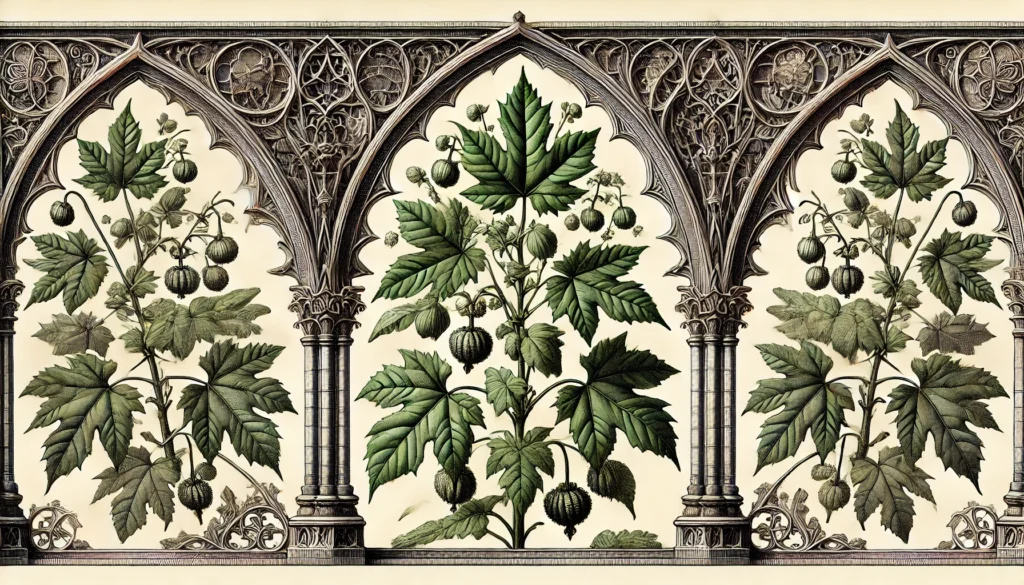

Home » Cat Plants » The Dangers of the Mayapple Plant to Cats

The Mayapple (Podophyllum peltatum), also known as American mandrake, wild lemon, and umbrella leaf, is a highly toxic plant to cats. This perennial herb is native to eastern North America and can be commonly found in moist, shady areas such as woods, thickets, and along riverbanks.
All parts of the Mayapple plant, except the ripe fruit, contain the toxic compound podophyllotoxin, which can cause severe health issues if ingested by cats.
Ingestion may cause mild gastrointestinal upset, but is generally not life-threatening.
Ingestion can result in mild symptoms like vomiting, diarrhea, or drooling. Rarely fatal but may require veterinary care.
Eating these plants can lead to more pronounced symptoms like abdominal pain, lethargy, or difficulty breathing. Veterinary intervention may be necessary.
Ingesting even small amounts can cause severe symptoms like organ damage, seizures, or cardiac failure without rapid treatment.
All parts of these plants are extremely poisonous to cats and can quickly lead to death, even with immediate veterinary care.
** Please note: Please note that toxicity level can vary based on the amount ingested and the specific cat. It's always best to keep these plants completely inaccessible to cats and seek immediate veterinary care or call the poison hotline if you suspect your cat has ingested any part of a toxic plant.
If a cat ingests any part of the Mayapple plant, they may experience a range of symptoms due to the toxic effects of podophyllotoxin. Common signs of Mayapple poisoning in cats include:
In severe cases, Mayapple poisoning can lead to liver damage, respiratory failure, and even death.
If you suspect your cat has ingested any part of the Mayapple plant, it is crucial to seek immediate veterinary care. Your veterinarian will likely follow these steps to diagnose and treat Mayapple poisoning:

A: Yes, the Mayapple Plant (Podophyllum peltatum) is toxic to cats. It contains podophyllotoxin, a compound that can cause serious health issues if ingested by felines.
A: A cat that ingests the Mayapple Plant may experience symptoms like vomiting, diarrhea, abdominal pain, excessive drooling, and in severe cases, lethargy or seizures.
A: Even small amounts of the Mayapple Plant can be harmful to cats. The podophyllotoxin present in the plant is potent and can cause poisoning with minimal consumption.
A: If your cat consumes any part of the Mayapple Plant, contact your veterinarian immediately. They may recommend inducing vomiting or providing activated charcoal to limit toxin absorption.
A: While Mayapple poisoning can be fatal if not treated promptly, early intervention can help reduce the risk of severe complications. It is important to act quickly to prevent long-term harm.
A: Yes, safer alternatives include Ferns, Marigolds, and Boston Fern, which are non-toxic to cats and safe for households with pets.
Mayapple, native to eastern North America, has been used for centuries by indigenous peoples for medicinal purposes. Its toxic properties were harnessed to treat various ailments. European explorers first documented it in the 17th century, and it gained popularity in Western medicine by the 1800s.
Today, Mayapple remains significant in modern medicine. Its compound podophyllotoxin is used in cancer treatments and other drugs. While toxic if misused, the plant continues to be studied for its potential medical applications. It’s also valued as an ornamental in woodland gardens, showcasing its unique umbrella-like leaves.
Please note: The information shared in this post is for informational purposes only and should not be considered as veterinary medical advice.
🐾 A hilarious or heart-melting cat video
🐾 Our latest paws-on review of a cool cat toy